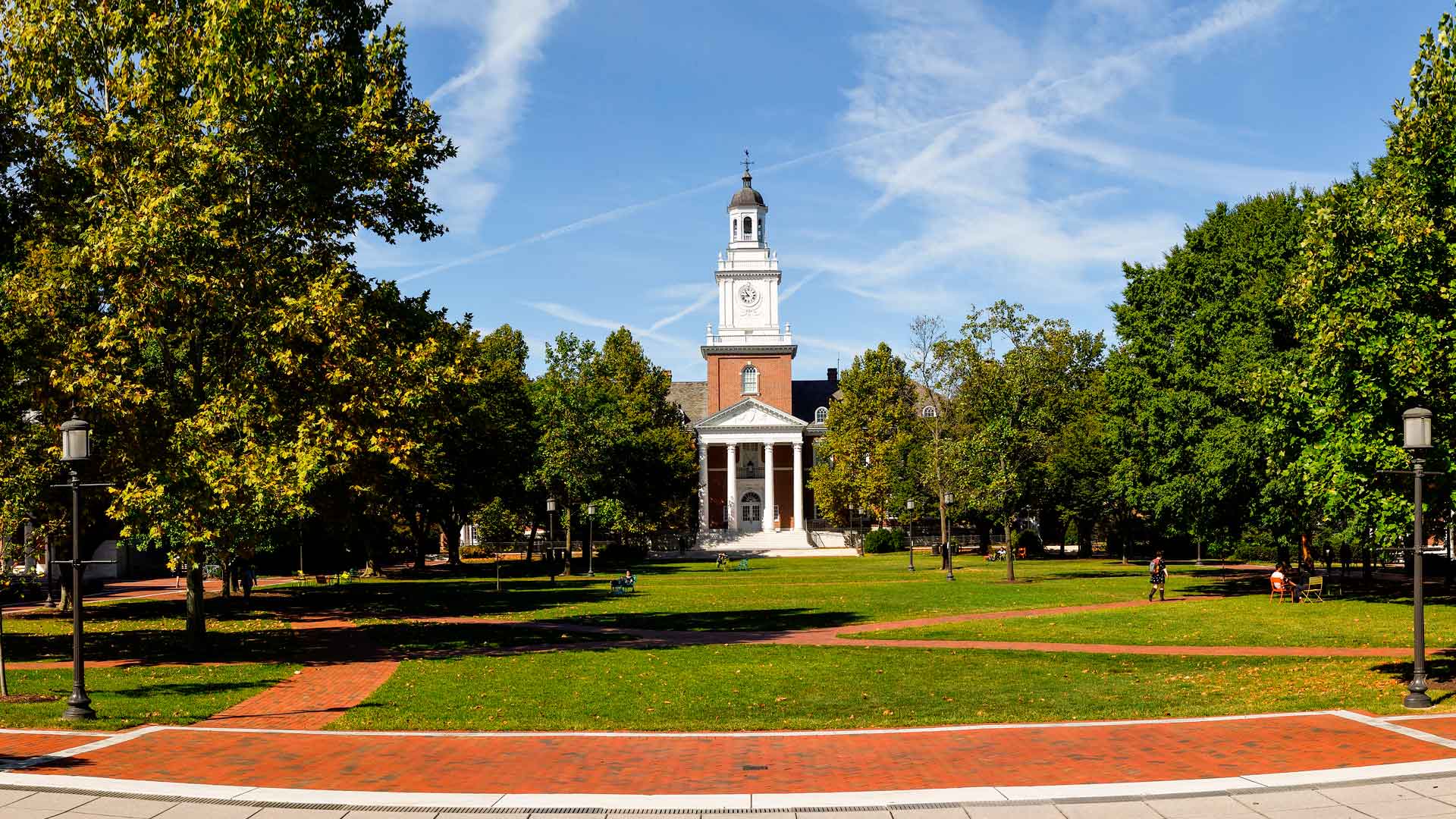Beth Blauer, Executive Director, Centers for Civic Impact
With a $3 million grant from the Stavros Niarchos Foundation, Blauer translates raw COVID-19-related data into visualizations, pairing the data with public health and economic expertise across the university. She and her team, in partnership with Bloomberg Philanthropies, help U.S. mayors integrate COVID-specific metrics into decisions about raising and lowering restrictions in their communities.
Veena Das, Krieger-Eisenhower Professor; and Clara Han, Associate Professor, Anthropology
Das and Han were awarded a National Science Foundation RAPID COVID-19 grant to fund a multicountry study on the implications of COVID-19-related policies on household decision making and the economic recovery of households once such policies are lifted.
Stefanie DeLuca, James Coleman Professor of Sociology and Social Policy
With the help of 25 student researchers at her Poverty and Inequality Research Lab over the summer, DeLuca continued her research on social inequality through her longitudinal study that explores how housing assistance helps low-income families and children cope during the pandemic.
Ernesto Freire, Henry Walters Professor; and Arne Schon, Research Scientist, Biology
Through a long-standing collaboration with the Vaccine Research Center at the National Institute of Allergy and Infectious Diseases, Freire and Schon are exploring the impact of antibodies against coronavirus surface glycoproteins.
Taekjip Ha, Bloomberg Distinguished Professor, Biophysics
With colleagues at the School of Medicine, Ha develops, tests, and optimizes novel technologies for detection of the virus’s RNA via superhelicase-based nucleic acid amplification, aiming to support early detection through rapid testing devices that are accurate, inexpensive, and can be deployed on a massive scale.
Gerard Lemson, Research Scientist, Physics and Astronomy; and Alex Szalay, Bloomberg Distinguished Professor, Physics and Astronomy
Through the Institute for Data Intensive Engineering and Science SciServer science platform, Lemson and Szalay hosted much of the data for a Johns Hopkins interdisciplinary team sequencing local strains of the virus (described in Michael Schatz’s entry below). The SciServer platform also supported the data analysis with specially configured hardware resources and software libraries.
Yujung Hwang, Assistant Professor, Economics
Hwang is conducting an experiment to understand the effect of biased media content on anti-Asian sentiment, perception about racism, and discriminatory behaviors against Asians. The goal is to understand how much we can abate racism by changing media culture and instilling the perception that racism is not tolerated in society.
Matthew Kahn, Bloomberg Distinguished Professor of Economics and Business, and Director, 21st Century Cities Initiative
In the current “Zoom economy,” and supported by the Searle Freedom Trust, Kahn is writing a book about the rise of remote work and how it will reshape urban life as people, firms, and local governments adapt to the redesign of the modern workplace. The unbundling of where we live from where we work will have several surprising consequences.
Juliette Lecomte, Professor; and Doug Barrick, Thomas C. Jenkins Professor, Biophysics
Lecomte and Barrick are characterizing SARS-CoV-2 proteins that participate in critical events in the viral infection cycle, with plans to describe and quantify key structural features and molecular interactions. The project’s results will form the basis of a seminar course on coronaviruses, aimed at better preparing the workforce.
Tiantian Liu, Doctoral Candidate, Sociology
Liu studies how the pandemic will create urban unemployment in China and affect the livelihood of migrant workers in various service and manufacturing sectors, and how urban unemployment will shape rural land transfer and migrant workers’ relationship with their farmland back home.
Michael Schatz, Bloomberg Distinguished Professor, Biology
Schatz is part of a Johns Hopkins interdisciplinary team sequencing Maryland and Washington, D.C., strains of the virus. High levels of genetic diversity suggest that the virus arrived in the area through multiple introductions. They have found little evidence of mutation, suggesting that a single vaccine may be effective.
Benjamin Zaitchik, Associate Professor, Earth and Planetary Sciences
Zaitchik is tracking and modeling the impact of hydroclimatic factors on the pandemic, aiming to quantify the role that climatic and hydrometeorological factors play in variability in COVID-19 transmission across time and space—important information when forecasting risk and strategically deploying vaccines as we move into a period of risk management and disease control.





